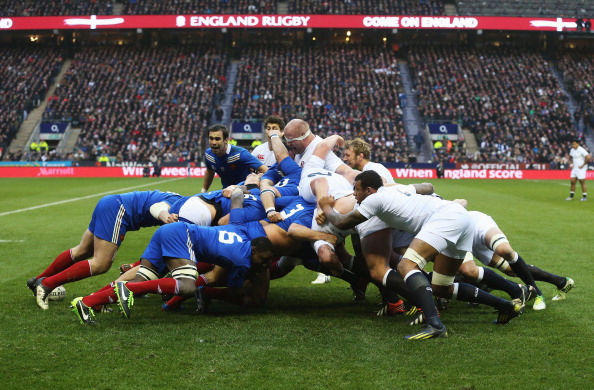Future Of Microsoft-Activision Deal Uncertain After FTC Appeal

Table of Contents
The FTC's Antitrust Concerns and the Appeal
The FTC's opposition to the Microsoft-Activision merger centers on potent antitrust concerns. The regulatory body argues that the acquisition would grant Microsoft excessive control over the gaming market, potentially stifling competition and harming consumers. Specifically, the FTC highlights concerns about Microsoft's potential dominance in:
- Gaming Consoles: The acquisition could give Microsoft an unfair advantage in the console market, especially considering the popularity of Xbox and the potential to limit access to Activision Blizzard games on competing platforms like PlayStation.
- Subscription Services: The integration of Activision Blizzard's vast library of games into Xbox Game Pass could significantly strengthen Microsoft's already robust subscription service, potentially pushing out rival subscription platforms.
The FTC's appeal process involves a complex legal battle, with a timeline that remains fluid. Key arguments presented by the FTC include:
- Reduced competition in the gaming market: The merger could significantly reduce the number of major players in the industry, leading to less innovation and higher prices.
- Potential harm to consumers through higher prices or fewer choices: Consumers might face higher prices for games or limited access to popular titles if Microsoft leverages its market power.
- Concerns over Microsoft's control over key gaming franchises: Control over franchises like Call of Duty, Warcraft, and Candy Crush raises concerns about Microsoft's ability to manipulate the market to its advantage.
Microsoft's Defense and Counterarguments
Microsoft has vigorously defended the acquisition, asserting that it will ultimately benefit gamers and increase competition. They argue that bringing Activision Blizzard games to Game Pass will expand access to a wider audience, and they have pledged to continue making Call of Duty available on various platforms, including PlayStation. Their key defenses include:
- Claims of increased competition through broader game availability: Microsoft argues that bringing Activision Blizzard games to Game Pass will make them accessible to more players, irrespective of console ownership.
- Promises of maintaining Call of Duty's availability on various platforms: This commitment aims to alleviate concerns about exclusivity and maintain competition in the gaming market.
- Argument that the acquisition will benefit gamers with better services and innovation: Microsoft claims that the combined resources will lead to improved game quality, enhanced services, and more innovative gaming experiences.
The Role of Other Regulatory Bodies
The Microsoft-Activision deal's fate isn't solely determined by the FTC. Other global regulatory bodies, such as the European Union (EU), have also weighed in, resulting in a patchwork of approvals and rejections across different regions. This adds another layer of complexity and uncertainty to the process. For example, while the EU initially expressed concerns, they ultimately approved the deal under certain conditions. This highlights the varying approaches and interpretations of antitrust laws across different jurisdictions.
- EU Approval with Conditions: The EU's conditional approval illustrates the nuanced nature of regulatory assessments and the importance of addressing specific concerns related to competition.
- Varying Stances Globally: The diverse responses from regulatory bodies worldwide demonstrate the multifaceted nature of evaluating such a significant merger.
Potential Outcomes and Implications
Several scenarios could unfold: full approval, partial approval with conditions, or complete rejection. Each outcome carries significant ramifications for the gaming industry and Microsoft's future plans.
- Full Approval: A full approval would allow Microsoft to proceed with the acquisition, potentially reshaping the gaming market and solidifying Microsoft's position as a major player.
- Partial Approval with Conditions: This scenario would likely involve stipulations aimed at mitigating antitrust concerns, potentially influencing how Microsoft integrates Activision Blizzard's properties.
- Complete Rejection: A complete rejection would be a major setback for Microsoft, forcing it to abandon its acquisition plans and potentially reevaluating its gaming strategy.
Potential consequences include:
- Impact on Microsoft's gaming strategy: A rejection could significantly alter Microsoft's gaming ambitions and necessitate a reassessment of its long-term plans.
- Changes in the competitive landscape of the gaming market: The deal's outcome will dramatically influence the competitive balance among major gaming companies.
- Effect on game development and distribution: The merger’s success or failure will likely affect the pace of game development, the cost of games and the distribution channels used.
Conclusion: The Future of the Microsoft-Activision Deal Remains Uncertain
The Microsoft-Activision deal's future remains shrouded in uncertainty, with the FTC appeal adding a significant layer of complexity. Both sides have presented compelling arguments, highlighting the intricacies of antitrust law and the significant impact this merger will have on the gaming industry. The outcome will not only affect Microsoft's gaming ambitions but also the broader competitive landscape, game pricing, and innovation in the gaming sector. To stay informed about the latest developments, search for "Microsoft Activision Blizzard merger update" or "latest news on the Microsoft-Activision deal" for continued coverage. The unfolding of this legal battle will undoubtedly shape the future of gaming for years to come.

Featured Posts
-
 Enexis Laadpunten In Noord Nederland Buiten Piektijden Opladen Voor Maximale Besparingen
May 01, 2025
Enexis Laadpunten In Noord Nederland Buiten Piektijden Opladen Voor Maximale Besparingen
May 01, 2025 -
 Dalys Late Show Steals Victory For England Against France In Six Nations Thriller
May 01, 2025
Dalys Late Show Steals Victory For England Against France In Six Nations Thriller
May 01, 2025 -
 Investigating Michael Sheens 1 Million Giveaway Campaign
May 01, 2025
Investigating Michael Sheens 1 Million Giveaway Campaign
May 01, 2025 -
 Nrc Health Top Ranked Healthcare Experience Management Platform
May 01, 2025
Nrc Health Top Ranked Healthcare Experience Management Platform
May 01, 2025 -
 Bkpm Bidik Investasi Rp3 6 Triliun Di Pekanbaru Tahun 2024
May 01, 2025
Bkpm Bidik Investasi Rp3 6 Triliun Di Pekanbaru Tahun 2024
May 01, 2025
